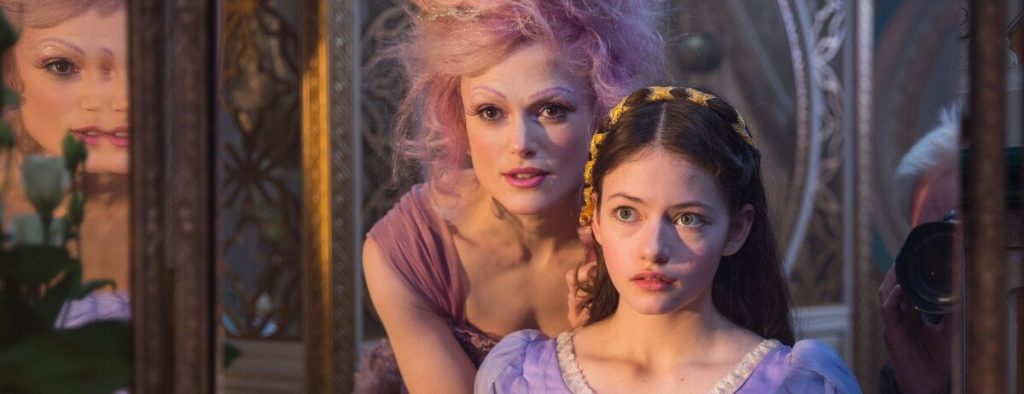
“The Nutcracker and The Four Realms” is one of Disney’s bigger misfires.
While the movie itself is a beautiful work of art with its special effects, colorful costumes and magical settings, the film’s message is divided between the traditional and the modern.
This is especially seen in the film’s confusing feminist messages.
The film is supposed to be a tribute to motherhood, as the screenwriter, Ashleigh Powell, has stated, while the producer, Linda Goldstein, has been quoted as adding more of a feminist message to girls through the additional action scenes.
These two different visions are exactly why the film is as pretty as a cupcake but lacking anything substantially memorable enough for the viewer to digest.
Here are three reasons why the movie itself is often at odds with the movie’s message (light spoilers):
Motherhood Is Overlooked in Favor of Power
Few feminists today are willing to acknowledge the value of stay-at-home-moms. We can see this attitude reflected in comments such as Kyrsten Sinema’s remarks that such women “leech off their husbands.”
It’s actually a wonderfully conservative point that this film acknowledges Clara’s loss at the death of her mother. For the film to include the specific “Quest for the Mother,” as seen in female-hero archetypes, is a very beautiful thing.

In today’s feminist world, distinction for such a quest is rarely acknowledged as unique to women, especially as young women who faces growing up into womanhood without a mother or a mother figure. (I even use this archetype in my own book, “Kingdom of Ash and Soot.”)
But after the end of the original Nutcracker ballet storyline, Clara’s quest morphs into saving the kingdom from its civil war—a more traditionally male-driven, feminism-approved “quest.” The quest to find her mother becomes a quest to restore her mother’s kingdom.
Men Are the Opposition
The female self-empowerment in this film comes at the expense of men.
In “The Nutcracker and the Four Realms,” men are largely regulated to opposition in the film (as a mother to a son, I found this especially irritating).
Clara’s first source of opposition is seen in her father, and then the titular Nutcracker himself serves as one of Clara’s foils. In the film, the Nutcracker, Captain Philip, receives blame more than once for the bad outcomes Clara faces. His role is regulated to a friendly, supportive position rather than a romantic interest.
In the original ballet, it was Clara’s love for the Nutcracker that aided them in the battle against the Mouse King. The absence of this love is noticeable, and it weakens Clara’s emotional arc (developing romantic, or at least more noticeably evident friendship, often helps establish womanhood from girlhood).
In the end of the ballet, Clara married the Nutcracker after he came to life. The film version finds her dancing with her father, to the song that her mother and father first danced to. This has some critics talking about the “oedipal elements” to Clara’s journey.
The male opposition also comes from minor characters.
In facing down Mother Ginger (Helen Mirren), Clara gets off her horse and has to lead her soldiers into the Fourth Realm because they stop out of fear. She is seen as a leader, but it’s a scene that makes the men with her look weak and fearful.
If not a source of opposition, the male characters do not offer much as role models for boys. include the two regents of the Snowflakes and Flowers. They’re seen as being duped by Sugar Plum, and another pair of guards serves as comedic reliefs.
None of them are particularly memorable.
The big exception to this is Drosselmeyer (Morgan Freeman), who is a mentor figure. He is the most developed and agreeable male character in Clara’s worlds.
The idea that women can only be empowered when men are put down is not only wrong, but ridiculous and, if carried to its fullest extent, dangerous. The filmmakers had such a good opportunity to make the film appeal to both boys and girls, but they choose not to. The message Clara’s mother left her, the idea that “all you need is yourself,” is not what makes a hero, or a well-rounded person; in fact, it might just make you more of a villain.
Which leads me to the last point:
Women are Heroes in What We Create, Not What We Destroy
In the original ballet, Clara was already the hero, and she was celebrated as such because she was able to distract the Mouse King long enough that the Nutcracker could kill him. In the film, making her a soldier didn’t help solidify her role as the hero; in fact, it diminished it, as seen when Sugar Plum easily betrays her.
Clara’s original position in the ballet version was someone who made the difference between order and chaos in the kingdom. In this version, Clara was given a role that let her lead an army and wage a war—one about which she was misinformed.
Many of her own actions resulted in further damage, and at the end, she left the Four Realms to go back home, leaving the kingdom without a ruler. She might have stopped the war by stopping Sugar Plum, but she left when there was still much work to do in the kingdom.
Feminism has embraced a position that stands on rejecting the traditional value of women in addition to their traditional roles, and in movies and stories such as these, it only offers self-centered empowerment and conflicting messages in return.
C. S. Johnson is the author of several young adult novels in a variety of genres including fantasy, science fiction, and historical fiction. Her latest spy adventure, “Kingdom of Ash and Soot (Book 1),” is now available. With a gift for sarcasm and an apologetic heart, she currently lives in Atlanta with her family. Find out more at Johnson’s official Web site.
